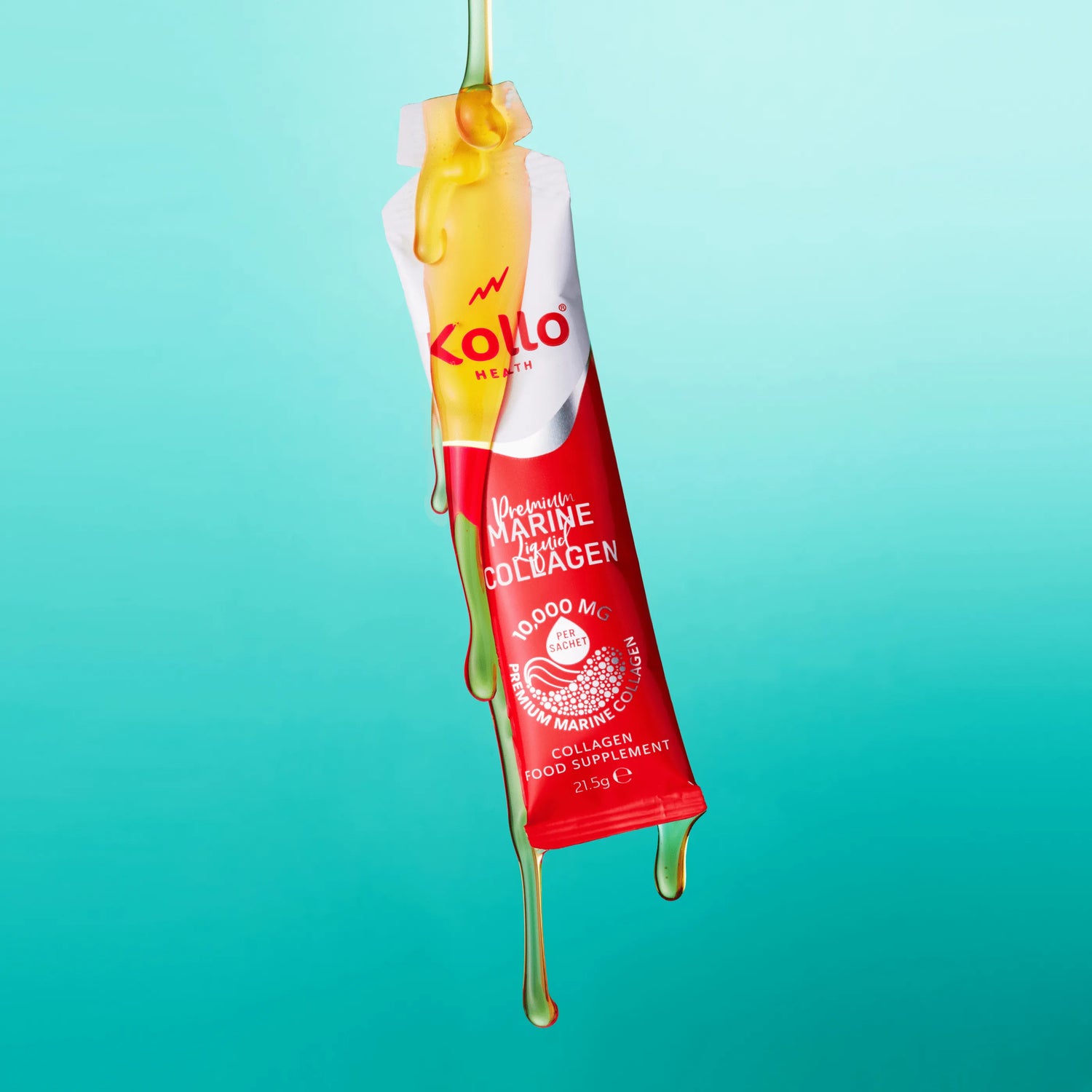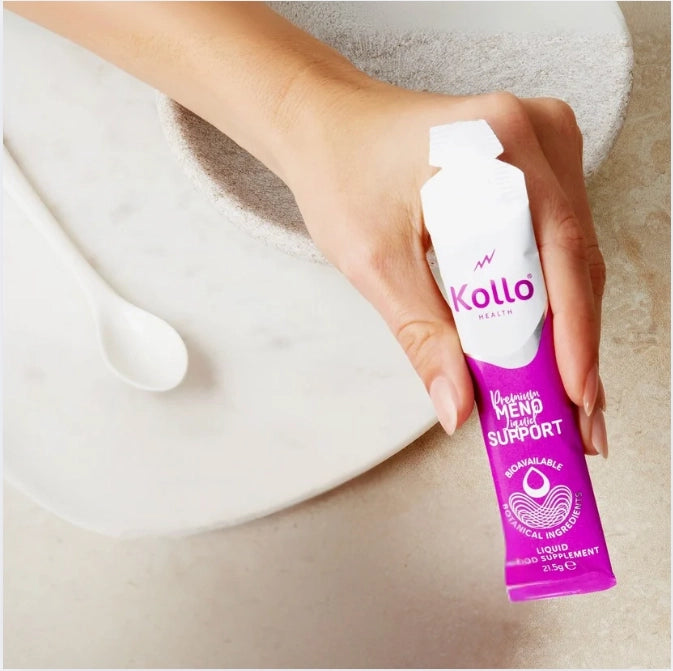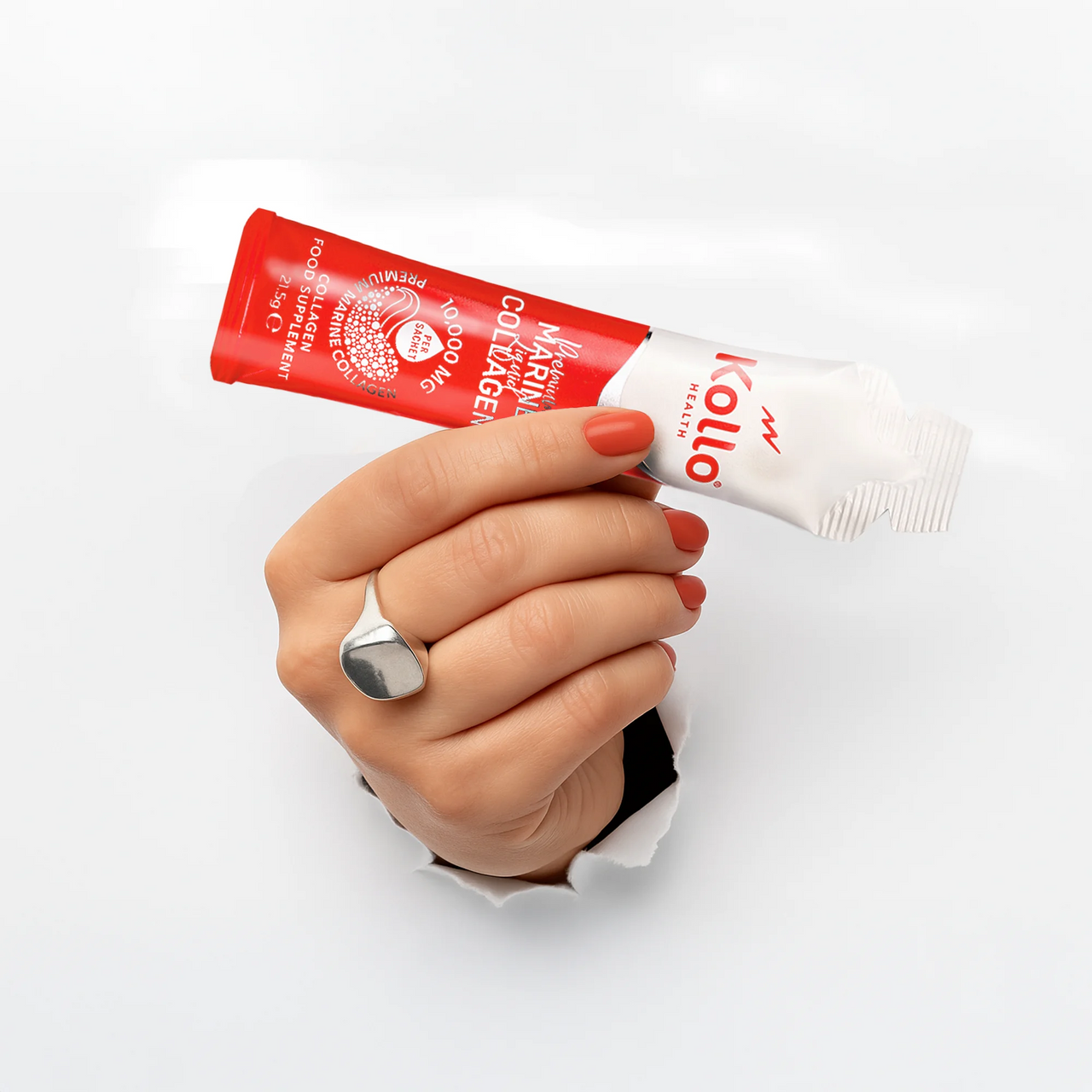Trying to conceive? The effects of collagen supplementation. – Kollo
Hello readers! My name is Alex Marks, and I am an Ante/Post Natal Personal Training Specialist. In this blog post I will explore the correlation between conception and collagen supplementation.
There is little evidence to suggest that marine collagen (Kollo’s key ingredient) has any known links to aiding conception, yet Kollo also contains Vitamins B & C, which when accompanied by Vitamin D & E, folic acid, zinc and selenium, it could help support your body and mind as you try and conceive.
Physiologically, when human emotions are in check this stability is reflected in our physical health. However, hormonal imbalances and medical intervention used to aid conception can make emotional stability challenging. This all adds to the stress of trying to conceive and there are countless statistics which show the links between stress and infertility in both men and women.
A 2004 study interviewed 122 women prior to their first infertility clinic visit and the results were striking; 40% of women were diagnosed as having anxiety, depression, or both. Subsequent research supports these findings. Volgsten’s 2008 study reported a 31% prevalence of psychiatric disorders in infertile women and men undergoing IVF treatment, the most common of which was major depression. A large Danish study in 2013 screened 42,000 women who underwent Assisted Reproductive Technology (ART) treatment for depression prior to treatment; 35% screened positive. In a 2015 study of 174 women undergoing infertility treatment, 39% met the criteria for major depressive disorder. During 2016, 7,352 women and 274 men were assessed in infertility clinics in northern California. It was determined that 56% of the women and 32% of the men reported significant symptoms of depression and 76% of the women and 61% of the men scored, reported significant symptoms of anxiety. I have selected but a fraction of the research conducted on the relationship between stress and infertility and I hope that these statistics emphasise the interconnectivity between the two.
Jay Winner, an MD (Doctor of Medicine) and the author of Take the Stress Out of Your Life, emphasises this causal link by stating that "Stress doesn't only make us feel awful emotionally, it can also exacerbate just about any health condition you can think of."
Taking this into account it becomes clear that stress is an incredibly destructive emotion, corroding not only your mental health, but also your physical health. The absence of stress is therefore advantageous. It doesn’t take a genius to make that estimation, but banishing stress becomes increasingly important when trying to conceive. You want your health to be at its peak so that you can make good on the miracle of procreation, and you want to do everything in your power to give yourself the best possible chance at conception. Emotionally you want to be balanced, positive and happy – stress is the last emotion anybody wants or needs during such a formative period of not just your life, but also the life of your future child.
Confidence is key to boosting a person’s mood and banishing stress. Glowing skin, nourished hair and healthy joints drastically help increase a person’s confidence, and all these miraculous changes could become a reality for you if you take Kollo daily for 4-6 weeks. Loving yourself and the skin you are in radiates positivity. Spiritually and emotionally, it is vital that such positive feelings are translated into the bedroom, carrying you through ovulation and hopefully resulting in conception.
The average age of conception in the UK has been steadily rising since 1970 and it was reported by Statista that the average age of mothers at childbirth in England and Wales in 2018 was 28.9 years. The biological clock of pregnancy keeps ticking, bringing with it hormonal imbalances which affect conception chances.
MedicalNewsToday.com states that “Sex hormone imbalances can lead to changes in sexual desire and health problems such as hair loss, bone loss, and infertility.” Fluctuating levels of oestrogen and testosterone can make conception difficult, like walking a catwalk made of cobblestones; hard but not impossible.
The solution, in my eyes, is to avoid stress at all costs. This, ironically, seems a stressful task in itself, yet supplementing with Kollo helps everyone look and feel great, thereby reducing stress. Taking Kollo is a sign of self-love, helping you nourish your skin and body, both inside and out. Emotionally it is a fantastic investment and could help boost your sense of positivity in both yourself and the world around you, aiding conception by changing your mood for the better.
There are no known side effects of supplementing with Kollo while trying to conceive, but if you have any concerns please contact your GP.
I look at it like this. Sometimes we feel better than we look and look better than we feel. But the perfect balance is when we feel just about as good as we look and look just about as good as we feel. Therefore, the goal is to always be looking and feeling your best, and this is where Kollo could help you as you continue in your journey towards conception.







